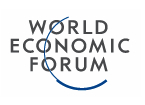World Economic Forum Report Finds 'Business Not Yet Playing Its Role In The Fight Against AIDS'
Published 12-01-03
Submitted by World Economic Forum
Of the nearly 8,000 businesses surveyed in 103 countries:
- 47% felt that HIV will have some impact on their business; this number is much lower in countries that to date have not been hard-hit by HIV. There are important regional variances - in Africa, 89% thought HIV would have some impact, but in the Middle East and North Africa that figure dropped to 33%. Worldwide, 21% of surveyed firms feel that HIV will have a severe impact on their business.
- Two-thirds indicated that HIV was not currently inflicting significant impacts on their operating costs, yet in heavily-affected regions, some businesses report serious negative impacts on their productivity and absenteeism, recruitment and training expenses, death and disability expenses, and even revenues.
- Similarly, nearly half of respondents thought that HIV has or will not cause a serious impact on the community, although respondents who expected a serious impact on their communities thought that their firms would be equally affected.
- Business leaders estimate lower HIV infection rates among their workforce than UNAIDS (official national adult prevalence figures), although 36% of business leaders did not or could not estimate how many of their employees had HIV. The small proportion of firms that have conducted quantitative studies estimates lower rates than other firms.
Kate Taylor, Director of the Global Health Initiative at the World Economic Forum, says of the report, "The findings of the survey are important as a first effort to quantify the business response to HIV. However, the findings show that just as the efforts by most governments have been insufficient, the overall private sector response to date is inadequate. Despite the ground-breaking efforts undertaken by leading companies, a great deal more needs to be done by the broader business community."
Businesses' response to the epidemic has so far been limited.
- Fewer than 6% of responding companies had formally-approved written HIV policies, but over a third nevertheless believe their current policies and programmes are sufficient and effective.
- Of the companies who do have written policies, one-quarter may still require disclosure of a current or prospective employee's HIV status and do not prohibit discrimination during recruitment. 22% do not prohibit discrimination based on HIV status during promotion, pay or benefits decisions (contrary to international standards set by the ILO).
- On the whole, firms appear to be satisfied with their ability to deal with the problem, with only 20% reporting that existing policies may be insufficient. However, firms that believe HIV/AIDS will have a serious impact on their business are more concerned, with 41% discontented with their existing policies.
"There is no doubt that in recent years the business community has started waking up to the enormous threat posed by the AIDS epidemic to its workforces and markets," adds Dr Peter Piot, Executive Director of UNAIDS. "However, the Forum's first ever survey of global business leaders' perceptions shows the enormity of the task in front of us. AIDS is a menace to the economic and social stability of the whole world - not only sub-Saharan Africa. This survey highlights the urgent need for businesses in other parts of the world, particularly in Asia, to take action now."
Report co-author David Bloom said, "This survey is the first global survey of its kind and is a giant step toward providing an evidence-based foundation for policy-making."
"The challenge is to use these findings positively - to renew our advocacy and outreach to business leaders. The World Economic Forum's Global Health Initiative and other groups such as the Global Business Coalition on HIV/AIDS must break business leaders' information and comprehension barriers. As long as there is little understanding of the immediate and future business impact of AIDS, far too few businesses will respond," Dr Taylor adds.
For an executive summary of the report please visit the Global Health Initiative's website at (http://www.weforum.org/globalhealth). The full report will be available in Davos, at the Forum's Annual Meeting 2004. For more information, please contact Dr Kate Taylor at +41 (0)79 375 1032 or Peter De Young +41 (0)79 477 8664.
* This report is funded, in part, through a grant by UNAIDS.
----------------------------------------------------------
The World Economic Forum is an independent international organization committed to improving the state of the world. The Forum provides a collaborative framework for the world's leaders to address global issues, engaging particularly its corporate members in global citizenship.
Incorporated as a foundation, and based in Geneva, Switzerland, the World Economic Forum is impartial and not-for-profit; it is tied to no political, partisan or national interests. The Forum has NGO consultative status with the Economic and Social Council of the United Nations.


